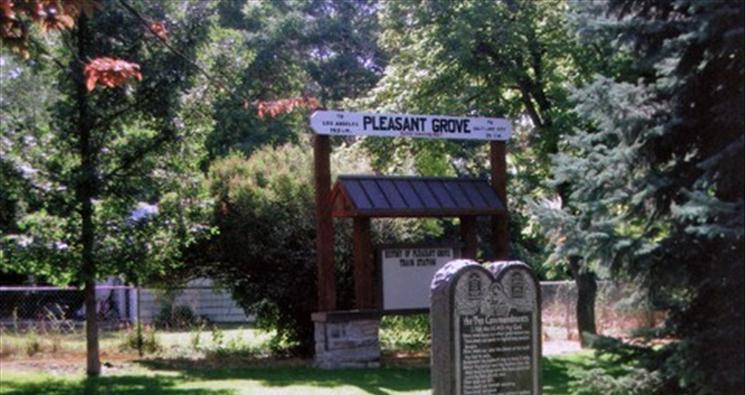Utah Supreme Court Hears Oral Argument in Summum v. Pleasant Grove
On March 4, 2014, I had the privilege to argue before the Utah Supreme Court in the latest stage of the multi-year litigation known as Summum v. Pleasant Grove.
As described in greater detail here and here, Summum first filed its lawsuit against Pleasant Grove City, Utah, nearly one decade ago in federal court, arguing that because the City displays in its historic Pioneer Park a Ten Commandments monument donated by the Fraternal Order of Eagles in 1971, the City must also display Summum’s Seven Aphorisms monument in that same park.
After losing on its claim under the federal free speech clause, a claim that was resolved in the City’s favor in 2009 by a 9-0 vote at the United States Supreme Court, Summum amended its complaint and asserted a claim under the federal establishment clause, a claim rejected by a federal trial judge in 2010.
Summum then turned to the Utah state courts for relief, advancing a claim under the Utah state constitution that Pleasant Grove’s denial of its request to accept and display its Seven Aphorisms monument in Pioneer Park violated the state’s establishment clause.
In June 2012, Utah state court judge Fred D. Howard ruled against Summum and in favor of the City. In response to Summum’s argument that because the City displays the Ten Commandments in Pioneer Park, Summum must be allowed to display its own monument in the same park, Judge Howard explained that “[t]his is not a situation in which the City has opened up the Park for private entities to erect monuments in expression of their private speech” and, thus, “[t]he benefit described by [Summum] . . . of one group being allowed to erect a monument while another group is denied the same privilege, simply does not exist.”
Summum appealed Judge Howard’s decision, which the Utah Supreme Court agreed to hear. After extensive briefing, the case was argued on March 4th (about five years after the United States Supreme Court handed down its unanimous ruling against Summum’s federal free speech clause claim).
During oral argument, the Justices of the Utah Supreme Court were engaged and asked searching and detailed questions. As with the oral argument at the United States Supreme Court (you can listen to the audio of that here), the Utah Justices were concerned with how a private party could have a constitutional right to erect a permanent monument in a public park when only the government displays monuments in that park.
Although a public park is a venue for private individuals and groups to engage in transitory speech activities, such as leafleting, that same general right should not extend to private individuals and groups being allowed to construct permanent displays in that same park.
If such a right did exist, as Summum claims, any group or individual would be able to force Pleasant Grove City to accept ownership of any item of its choosing, and also force the City to permanently display that item in Pioneer Park. Similarly, a host of public properties across Utah, where government displays monuments and the like, would become dumping grounds for an array of monuments, memorials, paintings, sculptures, and other items that private individuals or groups want government to accept and display.
We expect a decision from the Utah Supreme Court in the coming months.
